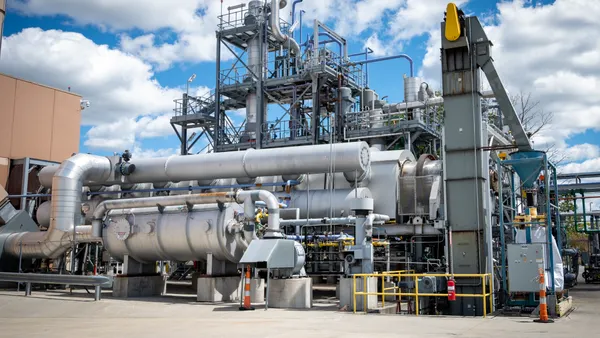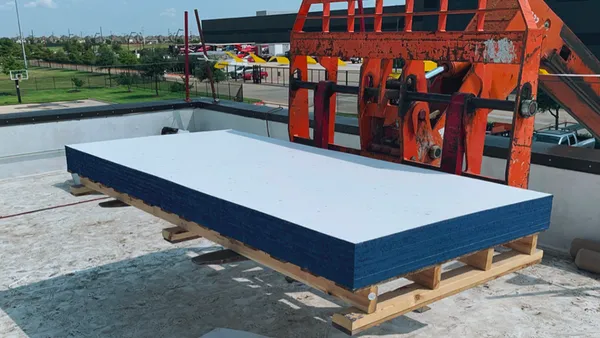UPDATE: Aug. 14, 2019: The Marquette County Solid Waste Management Authority has approved plans to spend an estimated $6 million on a MRF upgrade, as reported by WLUC.
This will be funded in part by a $3 million no-interest loan from the Closed Loop Fund, an $800,000 grant from the Michigan Department of Environment, Great Lakes, and Energy, as well as other potential grants. According to The Mining Journal, loan payments will be funded by an increase in solid waste tip fees.
Dive Brief:
- Marquette County, Michigan could get a new single-stream curbside recycling program alongside proposed improvements at the Marquette County Solid Waste Management Authority (MCSWMA) MRF, reports WLUC. The proposed MRF upgrade plan also includes glass processing equipment.
- According to Feb. 20 MCSWMA meeting minutes, which include a project report from Resource Recycling Systems (RRS), current markets aren't tolerant of the dual-stream facility's output. The document also cites increased local demand as a reason for adding single-stream recycling; without increasing single-stream capacity, it fears tonnages will dwindle as material gets shipped out of state for processing.
- The RRS report notes that the next step toward single-stream recycling is to secure funding. MCSWMA plans to meet soon with partners and stakeholders including Closed Loop Partners, its landfill consultant and the Michigan Department of Environmental Quality.
Dive Insight:
After examining capital and operating factors, RRS will present MCSWMA with a recommended revised tipping fee model as well as a detailed financing report. Part of the project planning process involves examining whether or not to reinstate a glass recycling program. Glass recycling ended in the area several years ago, but its potential revival comes at an interesting time.
Over the past few years, many municipalities across the country have eliminated glass recycling and sent the material to landfills or reverted to a dual-stream program to keep glass separate. Washington legislators, for example, are considering legislation that would eliminate glass from curbside recycling programs statewide. However, like MCSWMA, some areas recognize that source-separated glass has viable markets. Going against recent trends, a handful of local governments — such as Moore County, North Carolina — have added some sort of glass recycling program in the past several months.
Beyond the glass aspect, MCSWMA's decision to adopt a single-stream program is also noteworthy. Contamination concerns and tight budgets have prompted many municipalities to scale back on or suspend curbside collection, while others have reverted to dual-stream or depot drop-off programs. Nashville is one of the few cities currently looking to expand curbside collection with increased pick-up frequency.
The RRS report provides a long-term view of the need to upgrade MCSWMA's MRF for single-stream capability. While many recyclers are currently focused on the short-term feasibility of continuing their programs, RRS notes that MCSWMA's program won't viable in the long term in Michigan's Upper Peninsula unless it starts making preparations now for increasing single-stream demand.
Assuming funding comes through on schedule, the MCSWMA MRF upgrades could take place this summer, and single-stream collection could begin next year. MCSWMA also operates its own landfill, with a recyclables drop-off station. Beyond Closed Loop Partners, one potential source of funding could be a new $15 million boost to Michigan's annual recycling budget that came from a last-minute legislative compromise in 2018.










